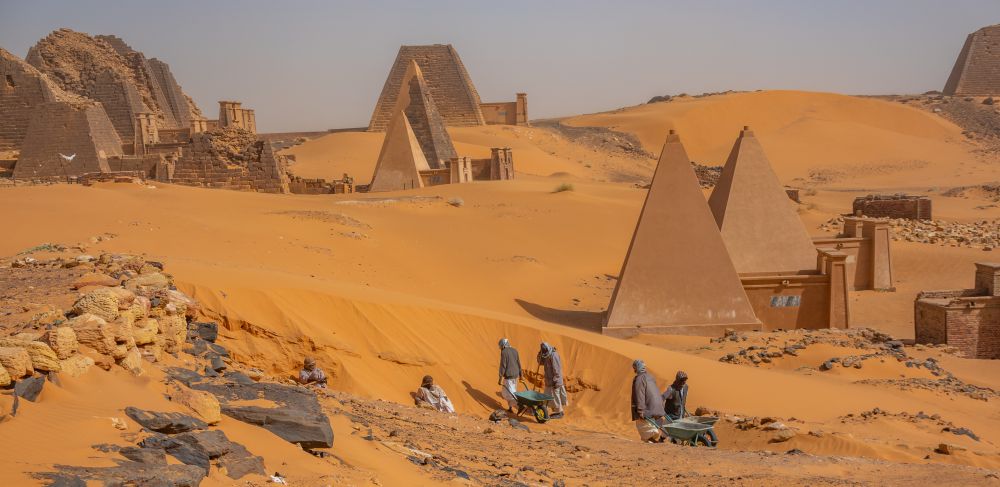
Fresh Eyes on Nubia

The Kingdom of Kush in ancient Nubia lasted over 1,000 years, and its legacy as an early African state remains a subject of great interest among scholars around the world.
A conference organized by Stuart Tyson Smith, a professor in UC Santa Barbara’s Department of Anthropology, will bring an international group of researchers to the seaside campus for three days of presentations that, he said, “reflect the latest discoveries and scholarship in the growing field of Nubian studies that assesses the development and legacy of Kush on its own terms, not just as a civilization in the shadow of ancient Egypt.”
“Origins and Afterlives of Kush: A Conference in Nubian Studies,” will take place Thursday, July 25, through Saturday, July 27, at UC Santa Barbara’s Mosher Alumni House. The conference includes leading archaeologists, bioarchaeologists, historians and art historians from around the United States and internationally.
Smith, who specializes in the archaeology of Egypt and Nubia, noted that the Kingdom of Kush plays an important role in the history of Africa as the first state outside of Egypt. The kingdom arose along the Nile at Napata in northern Sudan around 850 BC, and its kings ruled Egypt for a hundred years as pharaohs of the 25th Dynasty (from 750-650 BC). Although they were pushed out of Egypt by the Assyrians, he said, the kingdom lasted over a thousand years, an exceptionally long time for an ancient or even modern state and society.
Despite its success and longevity, Smith said, Kush civilization has been portrayed as a “primitive” culture dependent on “civilized” Egypt — interlopers in the broader Mediterranean world as the Kushite kingdom fought the Assyrians and later the Greeks and Romans.
“For Egyptologists,” Smith said, “the resonance of racist narratives and an ancient Egyptian ideology of Nubian inferiority reinforced the perception of Nubia as an ‘uncivilized’ backwater.”
The final day of conference presentations, Saturday the 27th, will focus on identifying and correcting Egyptocentric and racist bias in the characterization of Kush.
“As an example of a complex black African civilization,” Smith said, “Kush, along with Egypt, played a key role in the development of Black and Africana studies, as well as more generally the empowerment of African Americans against racist narratives of Africa as an uncivilized continent.
“Early African American scholars and leading intellectuals, including figures like W.E.B. Du Bois, Booker T. Washington and Marcus and Amy Jacques Garvey engaged with and challenged the often overtly racist views of early Egyptologists,” he continued. “Kush played a key role in these discussions and continues to be an important focus for more historically oriented scholars in Black and Africana Studies.”
Smith, who since 2013 has been doing archaeological work at Tombos in what was Nubia, will deliver the final presentation of the conference with “Racism, Egyptological stereotypes and the intersection local and international in Kushite material culture.”



